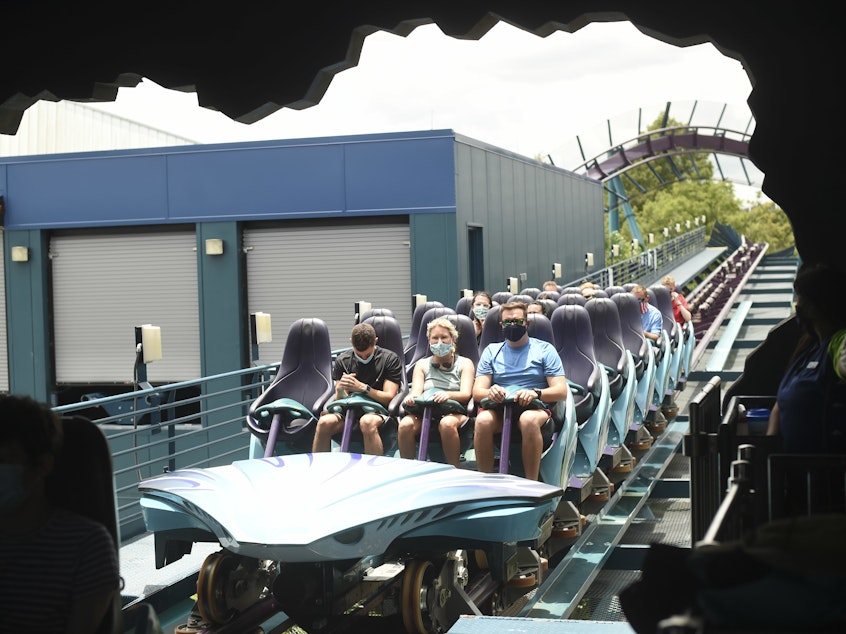Florida And S.C. Report New Spikes In Coronavirus Cases

A record high in South Carolina. A two-month high in Florida. Record hospitalizations in Texas. Several states that were among the first to reopen their economies are now reporting spikes in new coronavirus cases, driving an alarming trend that has propelled the U.S. to 2 million cases.
Florida reported nearly 1,700 new cases Thursday morning — "the biggest jump since March," as NPR member station WLRN reported. Hours after the state published that data, Gov. Ron DeSantis unveiled his plan to reopen schools in August, urging local governments to aim for "full capacity" when they resume classes.
"As you're testing more, you're going to find more cases," DeSantis said when asked about the high number. "We're doing 30,000-plus tests a day."
But some public health experts said the current rise in cases in many U.S. states is the result of community transmission, not a boost in testing. As he discussed Florida's numbers, DeSantis added, "We also do have ... outbreaks in agricultural communities," saying the coronavirus has spread rapidly in some rural areas.
Similar scenarios are playing out in at least 25 U.S. states and territories, with new cases and/or hospitalization rates spurring fears that many parts of the country are still yet to reach their peak.
Sponsored
Arizona reported 1,412 new coronavirus cases Thursday — far above its recent average of 1,071, which was already a 200% change from two weeks ago. Nearly 80% of the state's intensive care unit beds are in use. On April 11, the state's ICU bed occupancy rate was at 66%.
Texas has seen more people in the hospital due to COVID-19 this week than it has at any time during the pandemic. The figure fell to 2,008 on Thursday after soaring past the 2,000 mark for the first time earlier this week.
South Carolina announced nearly 700 new cases on Thursday, far outpacing its previous record high of 540 set earlier this week. The state's positive test rate is just over 14%, its health department said.
South Carolina allowed beaches and some businesses to reopen in late April. Restaurants were able to serve patrons in their dining rooms (at limited capacities) as of May 11.
"We began to see the first increasing trends several days after the Memorial Day weekend," said Dr. Linda Bell, the state epidemiologist, adding that incubation times and delays in testing would account for why those cases are turning up now.
Sponsored
"It's not unexpected," Bell added. "We saw lots of activity with large gatherings, no social distancing, very rare use of masks. So these findings are not unexpected."
About 73% of South Carolina's hospital beds were occupied as of Thursday morning, the state said — but it added that of the roughly 7,600 beds in total, 494 are "occupied by patients who have either tested positive or are under investigation for COVID-19."
Concerns about the negative trends in the fight against the coronavirus contributed to a devastating day for stock prices, with the Dow Jones Industrial Average experiencing "one of the worst one-day drops in history," as NPR's Jim Zarroli reported. [Copyright 2020 NPR]


